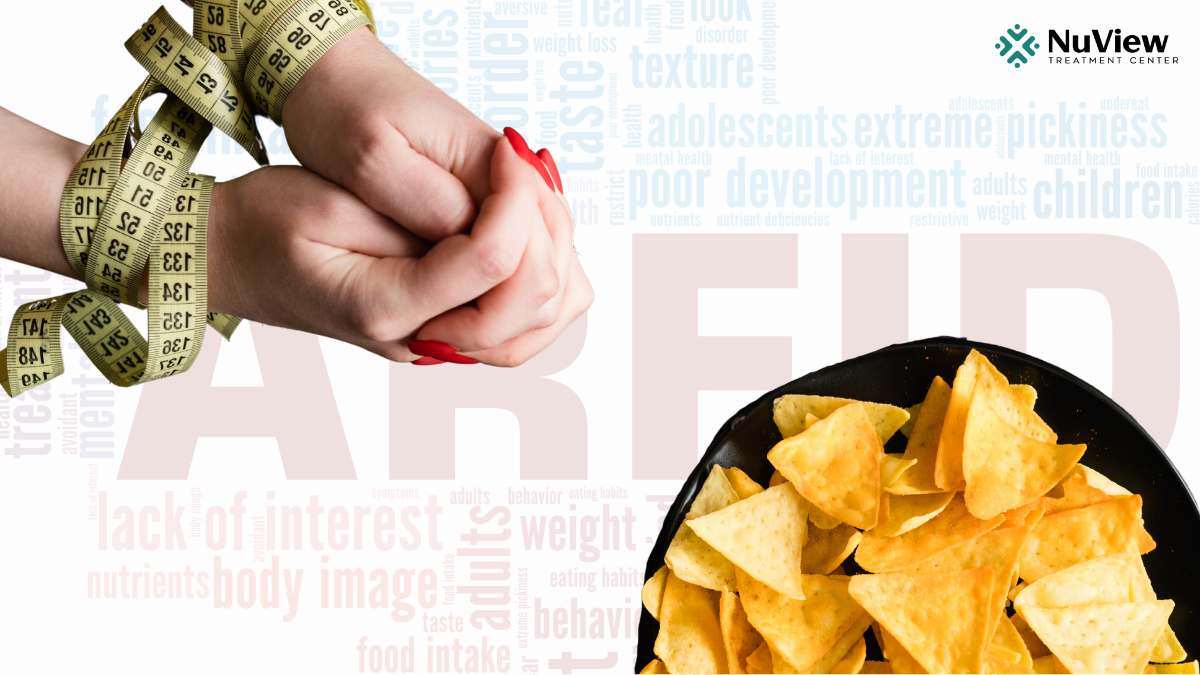Have you ever wondered if eating clean, avoiding junk, and caring about what you put in your body can become an obsession that overtakes your life? Is pursuing a ‘perfect’ diet healthy?
Anorexia nervosa, bulimia nervosa, and binge eating disorder – these are some widely known eating disorders. However, there is another eating disorder that is not as well-known but can lead to equally devastating consequences if not paid attention to. It is called orthorexia nervosa.
Orthorexia nervosa is an eating disorder characterized by an extreme focus on healthy eating. While healthy eating is good for the mind and body, an extreme of anything is not healthy. Therefore, orthorexia nervosa requires equal understanding, attention, and treatment as other eating disorders.
What is Orthorexia Nervosa?
Orthorexia nervosa, also simply known as orthorexia, is an eating disorder. It is characterized by an unhealthy fixation on healthy eating. Orthorexia nervosa was only recently coined by Steven Bratman in 1997, and is not yet fully understood. However, experts believe that it requires understanding, diagnosis, and treatment like any other eating disorder, as it can lead to potentially dangerous consequences.
With the unavailability of extensive information on orthorexia, it is easy to think of it as not very serious, as it focuses on healthy eating. For this reason, we need to first focus on how orthorexia is different from healthy eating.
Healthy eating refers to eating foods that are nutritious and provide the mind and body with energy, health, and wellness. This is optimal for the body, as one focuses on eating foods rich in nutrients and consuming less of unhealthy fats, sugars, and salts. However, orthorexia involves taking this to an extreme level, wherein people develop eating habits that lead to the rejection of foods they do not deem to be “pure” enough. In fact, Bratman even said that orthorexia’s definition stands for an extreme focus on “righteous eating.” Ultimately, what happens is that people with the said eating disorder end up rejecting a variety of foods that are not up to their standards.
Symptoms and Signs of Orthorexia Nervosa
Orthorexia nervosa is not yet fully understood, but there are some signs and symptoms to look out for the purposes of diagnosis and treatment:
- Unhealthy obsession with healthy foods and eating.
- Extreme fear and anxiety regarding unhealthy foods leads one to avoid these foods.
- Having a strict dietary regimen and not being able to be flexible without experiencing anxiety.
- Obsessed with food research, devoting a large amount of time to thinking/planning meals, scanning product labels, and surfing information on the internet regarding different ingredients.
- Avoiding foods as bad or unclean, despite not having any reasonable grounds to do so. This can lead to rejecting a wide variety of foods that are not up to personal standards.
- Fearing losing control over diet if not prepared by oneself, so eating out once in a while can lead to potentially severe consequences. This leads to avoiding social events or gatherings that involve food prepared by others.
- Being overly critical of family and friends’ choices of food.
- Showing visible signs of malnutrition as a consequence of unreasonable food restrictions, especially in terms of drastic, unhealthy weight loss.
Get Started With Nuview Treatment Center
Our dedicated professional staff is here to guide you or your loved one on the journey to lasting recovery, offering support every step of the way.
What are the Causes of Orthorexia?
The causes and risk factors for orthorexia nervosa can be biological, psychological, as well as social.
– Biological Factors:
Having a close relative with orthorexia nervosa (a family history) can increase the chances of developing the eating disorder.
– Psychological Factors:
Anxiety, perfectionism, and body image issues can make one more prone to orthorexia nervosa. In fact, it has often been linked with obsessive-compulsive disorder as well.
- Perfectionism
- Anxiety or OCD tendencies
- Low self-esteem
– Social Factors:
Certain adverse social experiences, like being bullied about weight, can lead to the development of orthorexia nervosa. It is also associated with higher income, the rise of knowledge regarding nutrition via social media, and other biases and stigmas regarding weight.
- Diet culture
- Social media
- Health misinformation
- Personal Risk Factors
- History of eating disorders or disordered eating
- Chronic health conditions or food intolerances that prompt hyperfocus on diet
- Athletes, dancers, or people in appearance-focused professions
- High achievers
Orthorexia Nervosa vs. Anorexia Nervosa
Orthorexia nervosa and anorexia nervosa are both eating disorders. However, they are different kinds of eating disorders. Certain differences between them are as follows:
– “Ortho” means right, and “ana” means without. Orthorexia involves taking extreme measures to eat the right kind of foods, while anorexia involves taking extreme measures to restrict food.
– Orthorexia develops as a result of extreme focus on how food impacts health. It involves eating foods deemed as pure by one’s own standards and a rejection of a wide variety of foods that are deemed impure without any reasonable understanding.
– Anorexia develops as a result of extreme focus on how food impacts body weight and image. It is characterized by extreme dietary restrictions to avoid weight gain.
While orthorexia and anorexia are different, there are also certain similarities:
– Both are related to diet control.
– Consistent, pervasive food-related thinking patterns.
– Elaborate on behaviors pertaining to the planning and preparation of meals.
– Refusing to eat outside.
– Avoiding social events involving food.
– Malnutrition.
Get Started With Nuview Treatment Center
Orthorexia Diagnosis
Orthorexia nervosa does not have an official diagnosis as of yet unlike other eating disorders. However, experts believe that it is a condition that requires its own set of diagnoses and treatments. Toward the same, Steven Bratman and Thomas Dunn have come up with a two-part diagnostic criterion that is as follows:
Criterion A –
- Compulsively follow food-based rules that are based on personal beliefs of healthy eating, which only get stricter and stricter as time goes on.
- Breaking self-imposed food rules will lead to severe emotional turmoil and anxiety, even giving rise to feelings of guilt and shame.
Criterion B –
- Body image and self-esteem become related to self-imposed food rules and how well one follows them.
- Social withdrawal, resulting from a fear of breaking these self-imposed food rules, as one can fear eating food outside/prepared by others. This can lead to problems in interpersonal and social relationships as well.
- Visible signs of malnutrition, as a consequence of extreme dietary restrictions based on self-imposed food rules.
How to overcome Orthorexia?
Overcoming Orthorexia requires a lot of work and rebuilding your relationship with food. It can be very challenging and mentally exhausting to break free from the rules you have built for yourself. But recovery from this disorder requires you to get through the mental block of food rules and the idea of pursuing the perfect diet.
- Acknowledge the problem and recognize that your focus on healthy eating has become harmful.
- Seek professional support, they can help you challenge rigid beliefs and create a balanced, flexible approach to food.
- Challenge food fears and rules that can feel uncomfortable, but it’s essential for healing.
- Reframe your definition of health and broaden your perspective on what true wellness looks like, which isn’t just nutrition but also mental, emotional, and social well-being.
- Remove sources from your life that promote extreme “clean eating” or unrealistic body ideals.
- Practicing mindful eating helps you tune into hunger and fullness cues without judgment. It encourages connection with your body instead of control over it.
- You don’t have to do it alone. Talk to trusted friends, join a support group, or involve family in your healing process.
Treatment Options for Orthorexia Nervosa
At the NuView Treatment Center, we provide comprehensive and personal treatment approaches to orthorexia nervosa. They include the following treatment paths:
Cognitive Behavioral Therapy – It involves identifying and challenging the maladaptive thinking, emotional, and behavioral patterns associated with orthorexia and reshaping them into healthy and productive patterns.
Behavior Modification – It involves understanding the adverse effects of one’s eating habits on physical and psychological health, and modifying them.
Exposure Therapy – It involves exposing one to the foods that can trigger anxiety in a safe and gradual manner so as to reintroduce these foods.
Holistic Therapies – Incorporating healthy practices like meditation, mindfulness, and yoga can help in relaxing and adopting healthier coping patterns.
Nutrition – As orthorexia can lead to malnutrition, nutrition is paid attention to, and dietary plans are designed to supply nutrients and restore weight as needed.
Frequently Asked Questions
What is orthorexia nervosa?
Orthorexia nervosa is an eating disorder characterized by an unhealthy obsession with eating foods that are perceived to be "pure" or "healthy." It goes beyond normal healthy eating and can lead to nutritional deficiencies, anxiety, and social isolation.
How is orthorexia different from other eating disorders like anorexia or bulimia?
Unlike anorexia or bulimia, which focus on the quantity of food or body weight, orthorexia is centered on the quality and purity of food. The focus is less on losing weight and more on feeling "clean" or morally good through restrictive eating habits.
What are the warning signs of Orthorexia?
Strict food rules, guilt after eating “unhealthy” foods, avoiding social meals, and obsession with food ingredients.
What are the symptoms of Orthorexia?
Orthorexia goes beyond healthy eating symptoms, including obsessive food control, fear of “bad” foods, and negative effects on mental, social, and physical health.
Can someone recover from orthorexia?
Yes. With the right support and treatment, individuals can develop a balanced, flexible relationship with food and regain their emotional and physical health.
- What is Orthorexia Nervosa?
- Symptoms and Signs of Orthorexia Nervosa
- What are the Causes of Orthorexia?
- Orthorexia Nervosa vs. Anorexia Nervosa
- Orthorexia Diagnosis
- How to overcome Orthorexia?
- Treatment Options for Orthorexia Nervosa
- Frequently Asked Questions
- What is Orthorexia Nervosa?
- Symptoms and Signs of Orthorexia Nervosa
- What are the Causes of Orthorexia?
- Orthorexia Nervosa vs. Anorexia Nervosa
- Orthorexia Diagnosis
- How to overcome Orthorexia?
- Treatment Options for Orthorexia Nervosa
- Frequently Asked Questions
Get Help Today!
Everyone is Welcome Here and We All Have Your Back
Your healing journey deserves a personalized approach. At NuView, we integrate expertise in behavioral therapy, mental health, and substance use treatment to create a customized recovery plan tailored to your unique needs.
Connect with our Admissions Specialists today.







Written By
Dr. Ryan Peterson